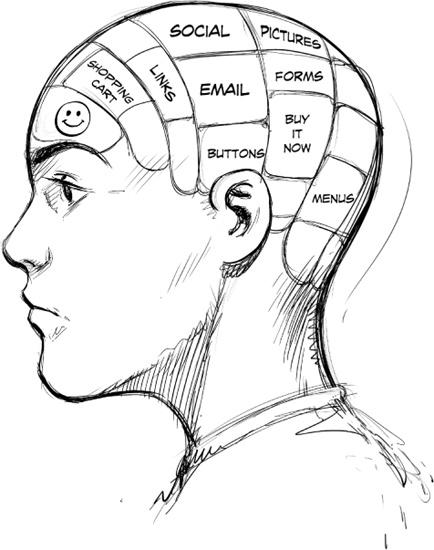Chapter 12. What Is User Psychology?
Everything that can happen in a user’s mind is important when they use your design. And a few things before that. And a few after.
Wait... let’s back up for a second and talk about psychology in general
Just for a second.
Whether you’re discussing dating psychology, or consumer psychology, or bathroom psychology, (which isn’t so popular in grad school), you’re still talking about the same brain we all got on our first day.
There is no special “user” part in there.
UX Design can affect that brain in lots of predictable ways. And that’s what you’re gonna learn: your brain, on design. All practical, all the time. No history, unless it matters. Nothing philosophical, because that’s not how I roll. And no Sigmund Freud, because cocaine isn’t considered a “best practice” anymore.
Just stuff you can use.

Why Do We Need User Psychology?
The answer: you can’t be a great UX designer without psychology.
UX Design is the practice of creating nonrandom effects in people to solve a problem. In other words, you make them feel, think, and do stuff—on purpose. Therefore, the more you understand your users’ feelings, thoughts, and actions, the better designer you are.
Understanding psychology allows you to answer things like why people share. Or why don’t they choose the cheapest option every time? Or why does the design that got 200 Likes on Dribbble actually suck the big ...
Get UX for Beginners now with the O’Reilly learning platform.
O’Reilly members experience books, live events, courses curated by job role, and more from O’Reilly and nearly 200 top publishers.

